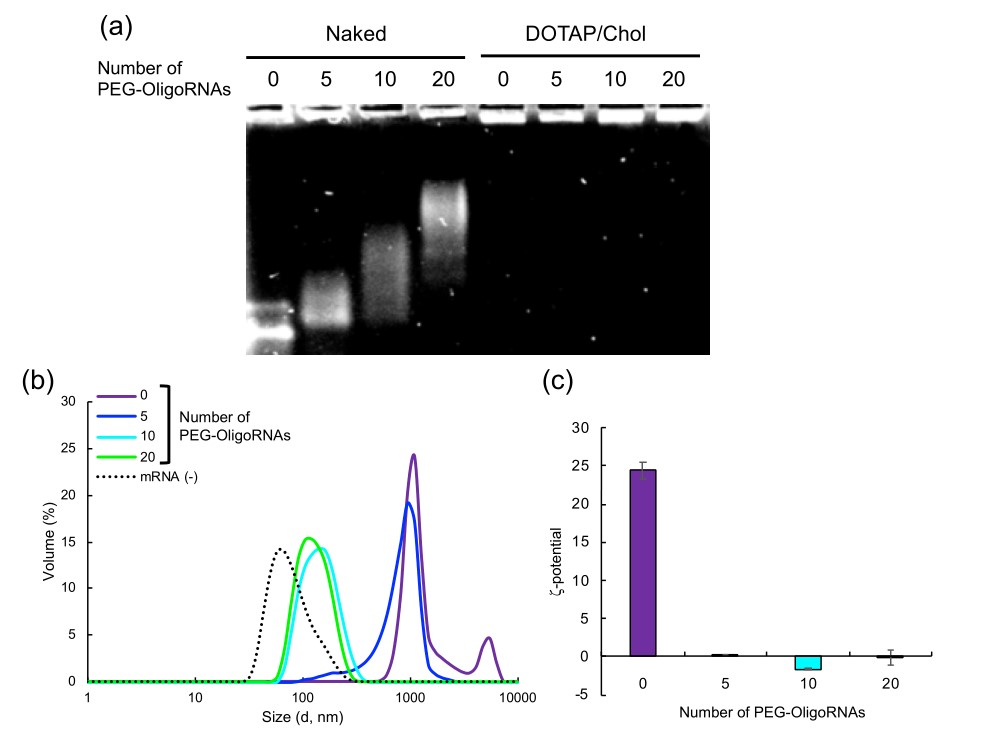Custom Oligonucleotide PEGylation Service
PEGylation can provide additional water solubility and immunogenicity improvements to nucleic acid fragments or oligonucleotides, allowing nucleic acid drugs to be delivered to target regions at more effective doses. With our excellent biosynthetic technology platform and professional R&D team, Creative Biolabs provides comprehensive and stable oligonucleotide PEGylation services. Our highly skilled scientists are always ready to get started on your projects.
Oligonucleotides PEGylation
Polyethylene glycol is one of the most commonly used biomolecular modification and binding reagents, with excellent biocompatibility and operability. PEG is usually prepared from ethylene oxide through an anionic ring-opening reaction, which can yield linear or branched PEG polymers with molecular weights ranging from 2.5 kDa to over 50 kDa. The use of PEG polymers in bioconjugation applications can significantly improve the water solubility and immunogenicity of the modified molecules, protect the modified molecules from enzymatic digestion and cleavage, and effectively increase the molecular bulk to avoid renal filtration. These characteristics can significantly improve the pharmacodynamics and pharmacokinetic parameters of nucleic acid/oligonucleotide drugs.
Methods of Oligonucleotides PEGylation
There are several possible ways for PEG molecules to be conjugated to nucleic acids/oligonucleotides depending on the chosen process. PEG can be modified by NHS to form NHS-PEG bifunctional or heterobifunctional crosslinkers, which can react with thiol-modified RNAs and crosslink with thiols. PEG-polycationic diblock copolymers added with specific diamine side chains can encapsulate siRNA into complex micelles with high escape ability in vivo. Lactosylated PEGs can be conjugated to oligonucleotides via acid-labile β-thiopropionate linkages to create pH-sensitive copolymers. PEG can also be used directly as an encapsulating material or combined with liposomes to form organic hybrid nanoparticles to provide better structural stability and drug aggregation ability. In addition, PEG can modify cyclodextrin-starburst polyamidoamine (PAMAM) dendrimer polymers and form polypseudorotaxanes, which can be used for sustained release of gene or oligonucleotide drugs.
 Fig 1. Characterization of Conjugation of PEG to OligoRNAs.1
Fig 1. Characterization of Conjugation of PEG to OligoRNAs.1
Creative Biolabs is dedicated to offering high-quality bioconjugation services with high-quality products and reliable scientific validation. In addition to PEGylation of oligonucleotides in various approaches, we also synthesize PEG polymers of specific lengths or nucleic acid aggregates of specific sequences and provide corresponding verification assays and reports. If you are interested in our bioconjugation services, our repertoire of expertise can provide you with the most appropriate solution to meet your requirements. Our abundant experience in biological and chemical research gives us the confidence to complete any downstream testing you entrust and provide you with stable and repeatable data output. Contact us to get more information about your project.
Reference
-
Kurimoto, Shota, et al. "PEG-OligoRNA hybridization of mRNA for developing sterically stable lipid nanoparticles toward in vivo administration." Molecules 24.7 (2019): 1303.
Under Open Access license CC BY 4.0, without modification.
